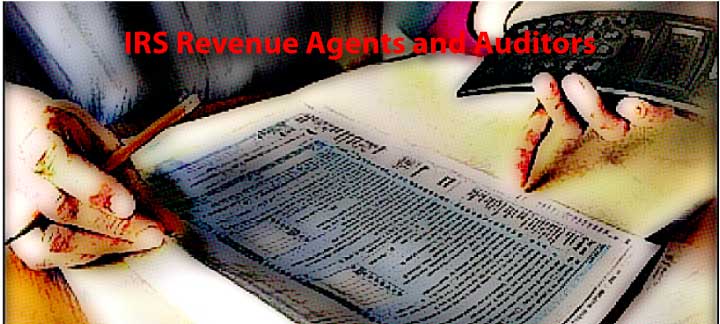IRS Revenue Agents and Auditors
Depending on the type of IRS audit being performed, either an IRS Auditor or an IRS Revenue Agent. The two types of IRS agents have different roles and duties.
What is an IRS Auditor?
IRS auditors are employees whose primary role is to verify the accuracy of federal tax returns. Entry-level positions usually require a bachelor’s degree related to accounting. CPAs who lack a bachelor’s degree may also be eligible for entry-level positions as IRS Auditors. Some workers may need to complete an additional 30 classroom hours of approved coursework related to accounting if they are not licensed CPAs. Higher-level auditing positions require a graduate degree.
What is the Role of an IRS Auditor during an Audit?
IRS Auditors analyze tax forms submitted to the IRS by individuals and businesses. They review forms to check for any inconsistencies that would require them to conduct an inquiry. IRS Auditors are typically involved in correspondence or office audits but they do not conduct field audits. Correspondence audits and office audits are less thorough than field audits, so the auditors themselves are less aggressive than the Revenue Agents who perform field audits. The auditors who perform correspondence and office audits are typically less invasive than those involved in field audits.
What is an IRS Revenue Agent?
An IRS Revenue Agent is generally an accountant who works for the U.S. Internal Revenue Service (IRS). Revenue Agents are more advanced and sophisticated than other IRS agents and they are typically involved in field audits. Revenue agents play an important role in selecting tax returns to audit and are heavily involved in the audit process. A revenue agent’s job is to examine and audit the financial records of individuals, businesses and corporations to make sure that tax liabilities have been met. Typically, revenue agents hold a bachelor’s degree. In some cases, they hold an associate’s degree in accounting. They are not actually required to be CPAs but some revenue agents are licensed as CPAs.
What is the Role of an IRS Revenue Agent During an Audit?
IRS Revenue Agents are typically involved in field audits. In conducting field audits, Revenue Agents examine and audit the tax returns selected for audit by the IRS. They are more aggressive and better trained than the IRS Auditors who perform correspondence and office audits. In the end, it is the revenue agent who decides what the ultimate tax liability will be at the conclusion of the audit. They are not limited to only having the ability to collect taxes due from taxpayers. However, they have the power to collect taxes and may initiate levies, liens, garnishments and seizures of assets. Generally, IRS Revenue Agents are sophisticated and knowledgeable about tax law. If you are contacted by an IRS Revenue Agent, it is best to secure representation for all dealings with the Revenue Agent.
When Should A Tax Attorney Speak To An Auditor On My Behalf?
Audits set the stage for most IRS actions. Any incriminating information that is discovered during the course of an audit can and will be used against you in future IRS proceedings. In the case of an "Eggshell Audit" the auditor may be investigating a certain type of tax or information that is pertinent to a specific year while being unaware that bigger problems may exist on your tax returns from other years or involving other types of tax. Those are called "Eggshell Audits" because you are walking on eggshells throughout the audit, trying to not call attention to those other potential problems.
It is important to know your rights and obligations when going through an audit. You do not necessarily have to give an IRS agent everything that they request, and knowing when to challenge an IRS agent and when not to can make a significant difference in the outcome of your case. This is why the experience of a tax attorney can pay dividends when going through an IRS audit.
The Tax Lawyer - William D Hartsock has been representing clients in IRS audits since the early 1980's. Mr. Hartsock offers free consultations with the full benefit and protections of attorney client privilege. Call today to schedule your free consultation.



Comments (0)